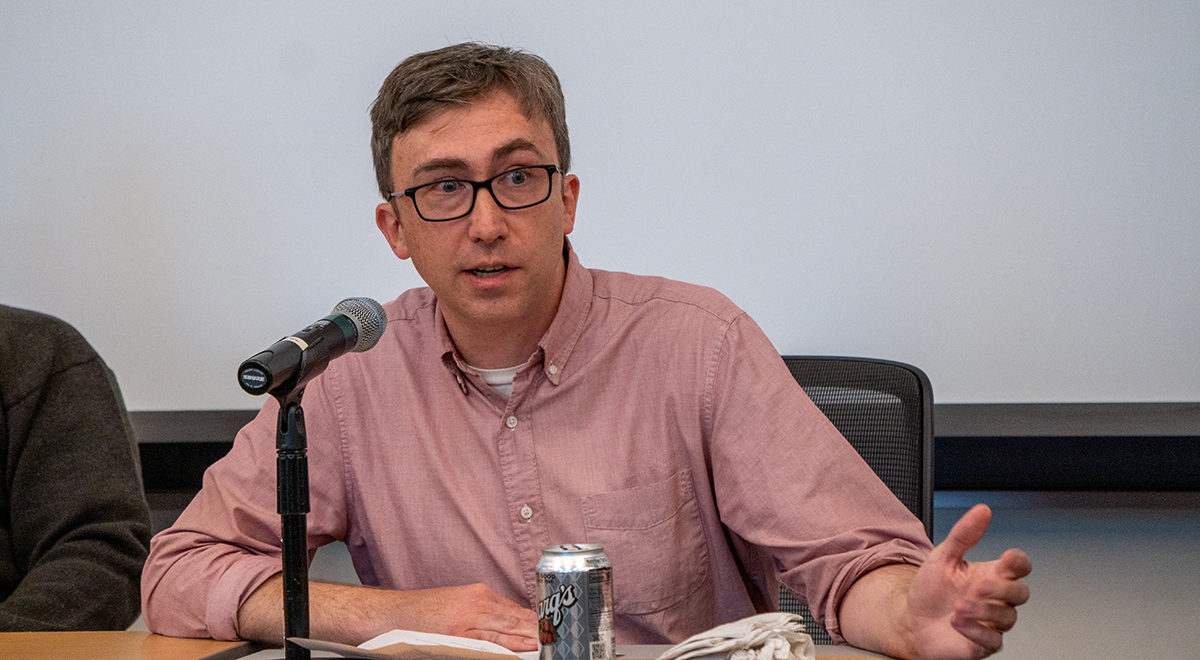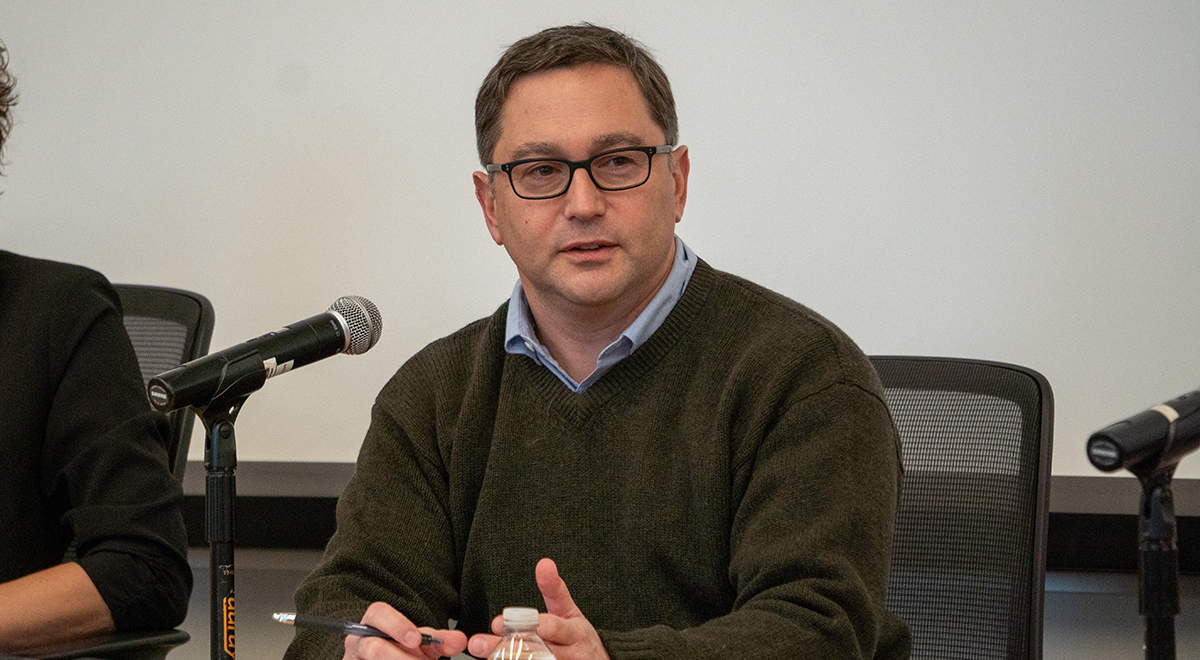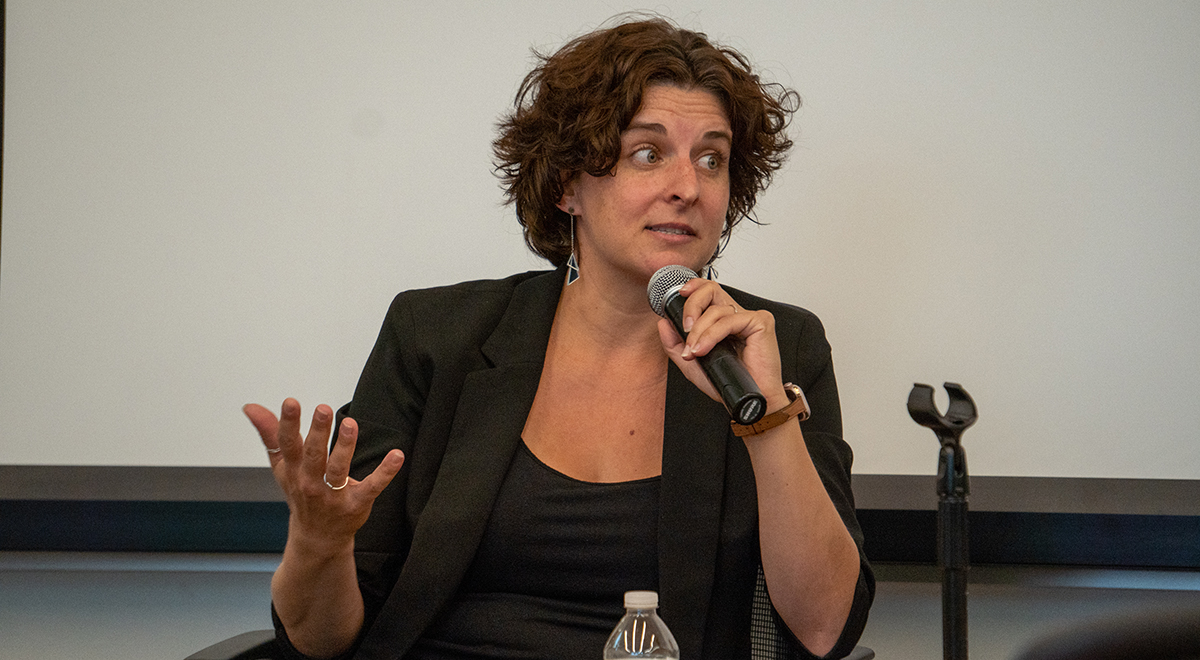Peaceful Transfer of Power? Scholars Discuss the Possibilities

Images of the U.S. Capitol on Jan. 6, 2021 are still shocking. What had historically been a ceremonial procedure turned riotous and deadly. The peaceful transfer of power between administrations was a point of national pride taught in history books, but today it is mired in uncertainty.
Robert Cassidy, assistant professor of the practice in government, gathered four scholars with different perspectives on what may happen this election cycle at a panel on Oct. 17. Logan Dancey, associate professor of government, offered insight into political developments and election reforms passed since the 2020 election. David Aaron ’95, visiting professor of government, talked about potential interference—physical and informational—by foreign and domestic actors. Carrie Lee, the director of the Civil-Military Relations Center and chair of the Department of National Security and Strategy at the U.S. Army War College, highlighted some of the ways veterans and National Guard members might become involved in extremism. Lilliana Mason, associate professor of political science at the SNF Agora Institute at Johns Hopkins University, presented research on attitudes toward political violence.
Dancey offered the self-proclaimed optimist’s perspective, saying there’s less reason to believe interference will rise to the level of the insurrection in 2021. He pointed to some key differences between the circumstances surrounding the 2020 and 2024 elections. Former President Donald Trump is no longer in office and will not be able to apply pressure on the Department of Justice or the vice president. Also, many of the people who carried out the attack on the Capitol have faced consequences. Congress has also taken steps to reform the process, including legislation specifying that the vice president’s role in the certification of electoral votes is “purely ceremonial,” he said.
“Since 2020, we have seen some bipartisan action to try to shore up the transfer of power,” Dancey said.

While there is cause for optimism, Aaron noted there are real threats to consider. There have already been interference attempts, as the Department of Justice indicted Iranian government-affiliated actors for allegedly hacking into the Trump campaign and disseminating documents to the media. He also highlighted attempts by foreign nations, like Russia, to use artificial intelligence to deceive citizens with disinformation and undermine trust in the system.
“What does that tell us about their intent? It’s not necessarily to hurt one campaign or help another, but to mess with us,” Aaron said. “That is success. It is messing with us, reducing our confidence in our own system, reducing our confidence in each other.”

While there may be further foreign interference, Lee delved into some of the ways military personnel may be involved in domestic election activity. She said if political violence breaks out, the National Guard could be called to control riots or protesting. In 2020, members of Trump’s campaign speculated about potentially using the National Guard to carry out election shenanigans, Lee said. However, since the National Guard is led by state governors, rather than the president, she expressed doubt that the military branch will be involved in any interference.
Lee also said that recent research has found that veterans are twice as likely as non-veteran citizens to express support for political violence. Veterans and law enforcement personnel are also targets of extremist groups, she said. Lee added that nearly 15 percent of the people charged in connection with the insurrection had military backgrounds—a much higher percentage than the ratio of veterans in the overall population.
“Veterans by and large are heavily recruited, particularly by far-right extremist organizations and paramilitary groups, because veteran status provides prestige for those groups,” Lee said. “They’re able to claim large numbers of veterans and law enforcement, and kind of co-opt the prestige of the United States military, which is one of the last remaining public institutions with more than 50% approval rating.”

In 2017, Mason and co-researchers found that around 10 percent of people in both parties thought it was okay to threaten people and use violence against people in other parties. This number has changed during Trump and Biden’s administrations, she said. For example, Democrats were slightly more likely to approve of violence toward Republicans during Trump’s administration but less likely to approve of it during Biden’s.
Mason also found that people were less likely to support violence when reading an anti-violence message from a prominent political leader, regardless of party affiliation, she said.
“When our leaders can’t do it, it’s also up to us as members of communities and societies to say to each other, ‘these types of actions just have no place in our democracy,’” Mason said.

